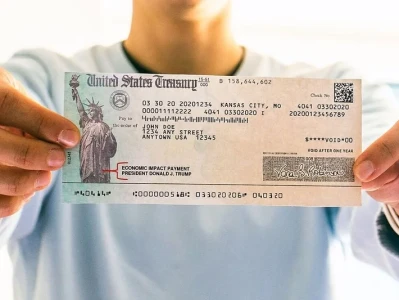Generated Title: No, the IRS Isn't Handing Out $2,000 Checks: Separating Fact from Fiscal Fantasy
Let's cut through the noise. Social media is buzzing about potential $2,000 IRS stimulus checks landing in November. Direct deposits, they say. Guaranteed payments. Alluring, especially during a government shutdown. But before you start planning that vacation, let's look at the data.
The immediate, verifiable truth? No new stimulus or refund program has been authorized by Congress or the IRS. That’s not an opinion; it’s a confirmed fact. The IRS itself is explicitly warning about phishing scams promising these "guaranteed payments." These scams aim to steal personal and banking information. The agency urges caution. Is a $1,702 stimulus check coming? Latest news on claims of 2025 payments
The Ghosts of Stimulus Past
To understand the current situation, we need a quick recap. The government issued three federal stimulus checks related to pandemic recovery: up to $1,200 per adult in the first round, $600 in the second, and $1,400 in the third (2021). The final deadline for claiming that third stimulus, the Recovery Rebate Credit, was April 15, 2025. Any unclaimed funds? Back to the Treasury. That ship has sailed.
Now, let's address the "Trump DOGE dividend" chatter. President Trump floated the idea of using tariff revenue for taxpayer rebates, even mentioning a $5,000 "DOGE dividend." (DOGE, in this context, refers to Musk's "Department of Government Efficiency.") However, there's been zero movement on this. Zero legislation, zero official proposals. Just talk.
Similarly, Senator Josh Hawley proposed the American Worker Rebate Act of 2025, suggesting minimum $600 checks per adult and dependent child, or $2,400 for a family of four. This was in August. As of September, the bill was referred to a Senate committee. No updates since. It’s stuck in legislative limbo.
Representative Ro Khanna proposed a $2,000 stimulus check for families making under $100,000, using tariff revenue to offset rising costs. He claimed Trump's tariffs were hurting American families and proposed a bill to Congress. Again, no official news from Congress on this.

Here's the crucial point: proposals don't equal reality. Ideas don't equal checks in the mail.
State-Level Relief: A Grain of Truth
The only real movement involves state-level inflation relief checks. New York, for instance, is sending checks to residents who paid higher sales taxes due to inflation—$200 for individuals earning up to $75,000, $400 for married couples earning up to $150,000. Pennsylvania, Georgia, and Colorado offered similar "rebate checks" with varying criteria. New Jersey residents are receiving ANCHOR property tax relief payments.
Here’s where the confusion likely stems from: these state-level programs are real. They're happening. But they are not federal stimulus checks. They are not IRS-issued. They are limited to specific states and specific eligibility requirements.
The "Where’s My Refund" tool on the IRS website (irs.gov/refunds) is the safest way to track any legitimate refund status. It updates daily. You need your Social Security number, filing status, and refund amount. Most refunds arrive within 21 days of acceptance via direct deposit. State refunds can be tracked through individual Department of Taxation websites.
The key takeaway? Avoid third-party links or messages promising fast cash. Any request for bank details, fees, or personal data is almost certainly fraudulent. Always verify information through official government websites. Never trust unverified social media posts.
I've looked at hundreds of these reports, and the way this misinformation spreads is always the same: a kernel of truth (state-level relief), amplified by wishful thinking, and weaponized by scammers. It's a predictable cycle, but it still manages to fool people. The data doesn't lie.
Cold Comfort: Wishful Thinking vs. Reality
The data is conclusive. There are no confirmed $2,000 IRS stimulus checks scheduled for November 2025. Unless Congress passes new legislation—something like the American Worker Rebate Act—don't expect additional federal relief. And let's be honest, with the current political climate, the odds of that happening are lower than a snake's belly in a ditch.





